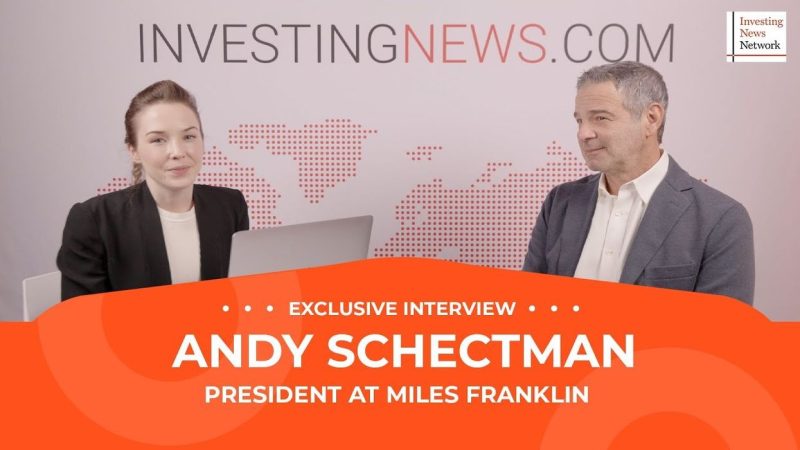Body:
1. The Dollar’s Hegemony and Its Implications:
The global financial landscape has long been dominated by the US dollar, which has enjoyed unrivaled status as the world’s reserve currency. This privileged position has granted the United States significant economic advantages and immense power in global affairs. However, recent discussions about the potential erosion of the dollar’s hegemony have gained traction, prompting experts like Andy Schectman, the CEO of Miles Franklin, to shed light on strategies for navigating this uncertain future.
2. The Fragility of the Dollar’s Dominance:
While the US dollar’s prominence may appear unshakeable, several factors are gradually eroding its hegemony. These include mounting national debt, escalating geopolitical tensions, and the rise of alternative economic powerhouses like China. In addition, the increasing adoption of digital currencies, such as Bitcoin, poses a potential threat to traditional fiat currencies, including the US dollar.
3. Diversification as the Key Strategy:
In the face of these challenges, investors and individuals need to consider diversifying their portfolios to protect themselves from the potential consequences of a waning dollar hegemony. Andy Schectman emphasizes the importance of diversification and highlights that precious metals, such as gold and silver, can play a crucial role in guarding wealth during uncertain times.
4. The Role of Precious Metals:
Historically, precious metals have been viewed as a safe haven during times of financial uncertainty. Gold, in particular, has proven to be a reliable store of value throughout centuries. It is a tangible asset with intrinsic worth that is not subject to the same vulnerabilities as paper currencies. Silver, too, carries similar properties and holds value in both industrial and investment contexts.
5. Internationalization of Investments:
To further safeguard wealth in the face of a potential decline in the dollar’s hegemony, experts recommend internationalizing investments. This involves diversifying assets in different currencies, regions, and markets outside the United States. By doing so, individuals can reduce exposure to any single currency and benefit from potential growth in other parts of the world.
6. The Importance of Financial Education:
Preparing for a future without the dollar’s hegemony requires a solid understanding of global economic trends and financial strategies. Andy Schectman encourages individuals to educate themselves on alternative currencies, investment options, and the potential impact of geopolitical events on financial markets. Staying informed and seeking professional advice can greatly assist in making sound investment decisions.
7. Navigating the Uncertainty:
Although the prospect of a post-dollar era may seem daunting, it also presents opportunities for those who are prepared. By embracing diversification, taking advantage of precious metals, internationalizing investments, and staying informed, individuals can position themselves for success even amidst a changing global financial landscape.
8. Adaptability and the Future:
Regardless of how the dollar’s hegemony evolves, adaptability will remain a vital quality for investors and individuals. The world is constantly changing, and being open to new ideas and strategies can prove essential in navigating the uncertain terrain of the future.
In conclusion, while the dollar’s hegemony may face challenges in the coming years, there are ways for individuals to safeguard their wealth and even capitalize on the changing global financial landscape. Diversification, precious metals, internationalization of investments, financial education, and adaptability are key factors in preparing for the potential decline of the dollar’s dominance. By adopting these strategies, individuals can position themselves for success and weather the storm of a changing global economy.

